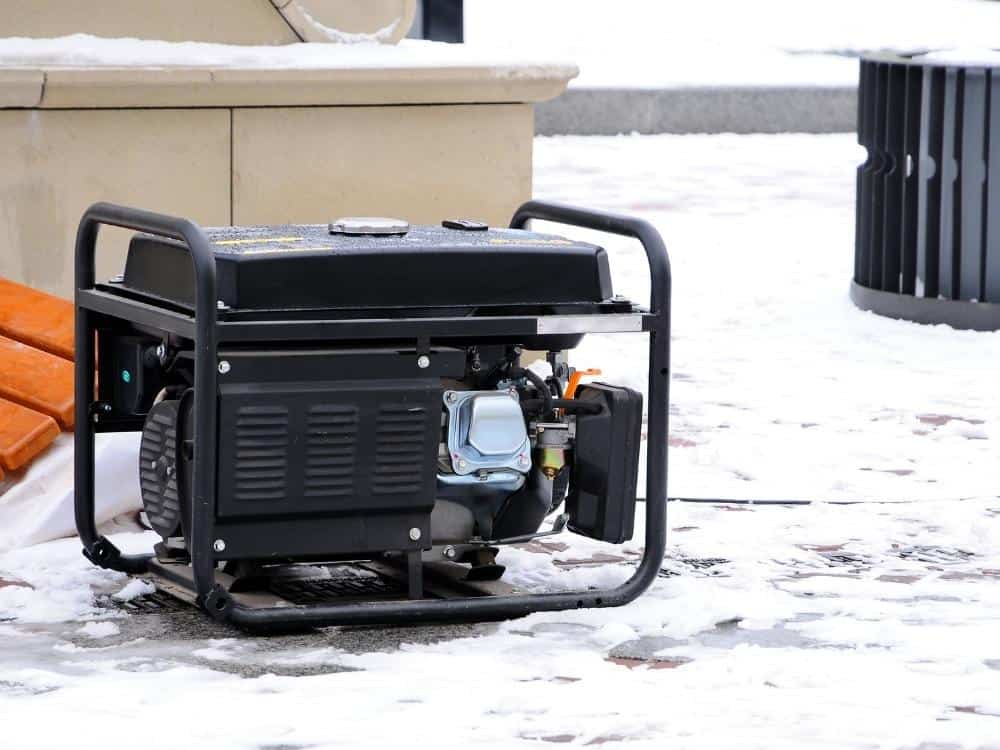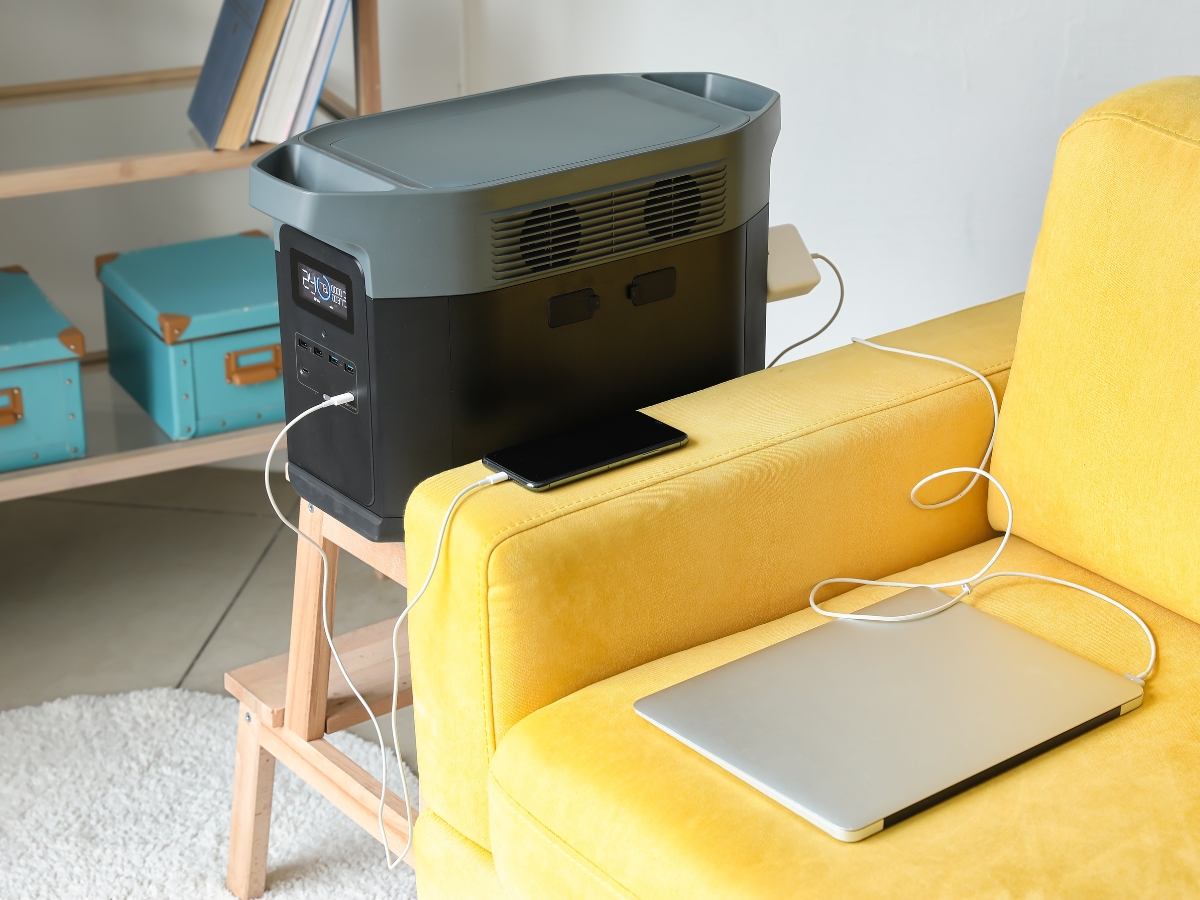You’ve finally done it! You bowed to fate and invested in a generator to make life easier during power outages. Although the relief of having backup power is a great feeling, it can become worrisome when your newly found ‘electrical independence’ is not working as it should. But why is your generator shutting off?
Your home generator can shut off from low oil to old spark plugs, overloading or not getting enough fuel. Servicing your generator as prescribed by the manufacturer is the best way to keep it from shutting down by itself and making it last a lifetime.
To help you troubleshoot why your generator keeps shutting off a few minutes after starting up, we will look at the following:
- What causes a generator to keep shutting off?
- How to fix what makes your generator shut off.
- How do I keep my generator running?
It can be pretty frustrating if your generator keeps shutting off and you’re not quite sure why. However, it only causes unnecessary stress to you and your family or business when this happens.

Why Does My Generator Keep Shutting Off?
All generators have the same basic principle – they have engines. Therefore, troubleshooting different parts of a generator will help you determine the problem, and you might be lucky enough that it is a quick fix that does not require a technician to service it.
Overloading Your Generator Causing It To Shut Off
Overloading is likely one of the biggest reasons your generator is shutting off. When you bought your generator, you might have asked the sales assistant which size you needed, or he might have asked you what you wanted to run with it, and that is how you determined the size you bought.
If it is the first time you use your generator, you might be plugging in too many appliances, causing it to shut off, or using an appliance or machine with high power consumption.
The solution. A restart is required, and before you hit up all the appliances you were trying to run, again, start small by plugging in the appliances one for one to find the one that is sucking g the life from your generator.
The manufacturer’s guide will also give you a guideline for the wattage of the appliances you can run on your generator. As a rule, though, appliances that generate heat, such as dishwashers, microwaves, washing machines, dryers, and heaters, use plenty of wattages.
If your generator cannot handle these types of high usage appliances, instead keep them unplugged for the duration of the power outage or generator run time.
Oil Levels Can Cause A Generator To Shutoff
Nothing runs as smooth as a well-oiled engine. Any issue with oil and your generator won’t stay on for long.
Too little oil when switching on the generator will cause the temperature of the oil to rise rapidly, which will cause the generator to shut down and refuse to work until the oil has cooled.
Too much oil can also cause the generator to shut down due to the oil sensors in the generator monitoring the levels.
The Solution. Every time you switch on the generator, check to ensure the right amount of oil in the generator. By doing this, you will also see when the oil is dirty and needs replacing.
Low Water Levels In The Radiator Of A Generator
Your generator will have a radiator to keep it cool, as with any engine. If the water level of the Radiator is too low, the generator will stop working not long after turning it on.
A dry radiator will cause the engine, control panel, and voltage meter to malfunction and can negatively affect the generator.
The solution. Check the Radiator regularly to ensure sufficient water in it.
Dirty And Faulty Spark Plugs Of A Generator
A mere spark plug is one of the essential parts of a generator. Without it, there’s no starting it. You will notice when it’s time for a new one. After turning on the generator, it will make a cracking sound and shut down seconds later.
The solution. It’s a simple one. Remove the spark plug to see its condition. If it is dirty give, it a good clean wipe and put it back in. If it is faulty, the problem will consist of needing to buy a new one.
Spark plugs are relatively affordable and easy to get hold of. However, I like keeping one or two on hand in case of an emergency.
Fuel Shutoff Valve Closed (Portable Generator)
Portable generators have a fuel shutoff valve, mainly used to store your generator for long periods to keep stale fuel from circulating through your generator.
Your generator might be able to start with fuel that is still in the carburetor, but it won’t last long when the generator is running, and the fuel shutoff valve is closed. This will make the generator shut off a few minutes after starting up.
The solution. Always check that the fuel shutoff valve is open when starting the generator.
Low Fuel Levels And Dirty Fuel Tank And Pipes Of A Generator
Although your fuel shutoff valve is open on the generator, it won’t help much if the fuel is low. Much less if there is some dirt and debris stuck in the fuel tank or pipes.
When there is not enough fuel to flow to the engine and carburetor, the engine will shut down. Also, if the fuel tank and pipes are damaged or have some debris in them, the fuel does not flow properly from the tank, and pressure can build up and cause the generator to shut down.
The solution. Before every startup, always ensure enough fuel in the generator to stay running. The fuel gauge will help you to ensure there is fuel in. As for dirty or damaged tanks and pipes: Check the generator often to see any leakages below the fuel pipes and check the tank for any spots that might indicate a fuel tank clean is in order.
A Clean Carburetor Keeps A Generator Running
If the carburetor of a generator is dirty, it will shut down not long after startup. This is due to the volatile ingredients formed from fuel evaporation that will create a thick mixture if bad fuel is left in the carburetor, disrupting the fuel supply.
The solution. Thoroughly clean the carburetor yourself. If that does not work, consider hiring a technician to service the generator and replace the carburetor.
Dirty And Clogged Up Air Filter Of A Generator
We all need clean air to live and breathe, and engines are the same. When the engine does not get the right amount of clean air from its surroundings, it will shut off almost immediately after starting up. Likewise, when the air filter is dirty, it will not allow clean air to flow to the engine.
The solution. Regularly cleaning the air filter would ensure the generator does not shut off unexpectedly and leave you in the dark. However, when cleaning the air filter is not enough to keep the generator running, it is time to replace it.
A Generator Won’t Stay On With A Closed Choke.
Most portable generators have manual chokes, which restrict and regulate the amount of oxygen that passes through the carburetor while simultaneously increasing the fuel flow. This is a crucial part of the startup on the generator.
Because the carburetor has a low fuel level with startup, the choke should be in full choke position to allow the correct amount of air and fuel to flow through it. If it makes a ‘cough’ sound and then shuts off, it can indicate that the choke is not in the proper position.
The solution. Turn the choke off and restart the generator with the choke in the correct position for a startup.
Exhaust System Fault On Generators
All that hot air that a generator creates to give power to the household needs to go somewhere, and that’s why a generator has got an exhaust. A generator can fail after a few minutes and continue doing that if the exhaust system is faulty or dirty.
The solution. Unfortunately, this can be a severe problem that needs professional servicing, but you can avoid that by regularly cleaning the exhaust and ensuring the system is running correctly. Also, ensuring no dust build-up is in the exhaust.
Engine Failure
One of the ‘not so easily’ diagnosed faults is an internal engine fault causing your generator to shut down a couple of seconds after startup.
The solution. If you cannot detect the problem on your generator by checking all the basics that might be wrong, it will be best to get your generator checked by a technician.
Electrical And Sensor Problems On Generators
Although you might be capable of servicing your generator with the basic spark plug, oil change, air filter change, or even fuel change, the same is not advised if you think you might have electrical or sensor problems.
Modern generators come with quite a few sensors. When these fail, it can also cause the generator to shut off after turning it on. As for electrical problems, that can happen to anyone. The electrical wiring or circuits might be at fault, and the generator won’t stay on if there is an electrical problem.
The solution. For electrical problems, check to see if you see any loose wiring. If you don’t know how to rewire, get a technician to do it for you. As for the sensors, check the control panel on the generator to ensure all the sensors are working correctly.
Always remember if you replace a sensor by yourself, you will have to reprogram the generator to get the new sensor working correctly. If the problems seem too severe for you, get a technician to assist you.
When you suspect that the problem is anything from an engine fault, exhaust system fault, or an electrical or sensor problem, then get a technician to help you sort it out before damaging the generator ultimately.
How Do I Keep My Generator Running Without Stopping?
Good maintenance and upkeep of your generator can help it last for a long time. So that would also be your best bet for extending its lifespan for as long as possible.
When we talk about generator maintenance, we get long-term and short-term maintenance.
Short-Term Maintenance On A Generator
Short-term maintenance would include running your generator under load weekly for about 15 to 20 minutes.
If you have a portable generator, switch it on and do something like boiling a kettle of water or ironing a shirt or two. If you have a standby generator, simply switch over the power to the generator.
By doing this, you allow the generator to run for a bit and get good air, fuel, and oil circulation through. This will help you to see if the generator is still in good working condition.
A Tip To Keep The Carburetor Clean
Portable generators have fuel stop valves. One of the best things for the carburetor that you can do is to keep the carburetor clean is to shut off the power first. Then, close the fuel stop valve and let the generator run the final bit of fuel through the carburetor until it shuts off by itself.
Doing this eliminates the slimy fuel that can become trapped in the carburetor should you forget to do a weekly switch on.
Monthly Fluid And Dust Checks On A Generator
Every month, check the fluid levels of your generator. Ensure there is enough oil and coolant still in the generator. Also, check the air filter and clean it out if need be. Leaves, dirt, and other things like spiderwebs easily accumulate on the housing of your generator and at the exhaust.
Ensure that you clean all this out so that the next time you need to use your generator, you’re not caught in the dark with a problem or two.
Long Term Maintenance On A Generator
Get a technician to do maintenance on the standby generator twice a year. They will typically run the generator for a couple of hours every six months to see if everything is still working properly.
Replaceable parts and fluids will be changed yearly, such as spark plugs, air filters, oil, etc. This also gives the technician a much-needed chance to ensure everything else is still working and maintain parts that need it.
Portable generators will also need to be serviced yearly at the least, that is, if you don’t find any problems with your monthly checks.
Be Careful Of Carbon Monoxide Where Your Generator Stands
When running your portable generator, ensure that it is outside. Even though it is easy for you to place the generator in the garage and keep it running with the exhaust facing out the door, it is ill-advised.
This is because generators need lots of circulating air to operate, and carbon monoxide develops quickly.
It is not only dangerous for humans to be near carbon monoxide by the amounts that generators create, but it isn’t good for your generator to take in the air it lets out.
References
- https://www.popularmechanics.com/adventure/reviews/a11855/home-generator-101-how-to-power-on-when-the-power-goes-out/
- https://www.generac.com/generaccorporate/media/library/content/home-solutions/portable-recreational-power/rs8000e-owners-manual.pdf
- https://www.alltimepower.com/learn-more/generator-maintenance/




